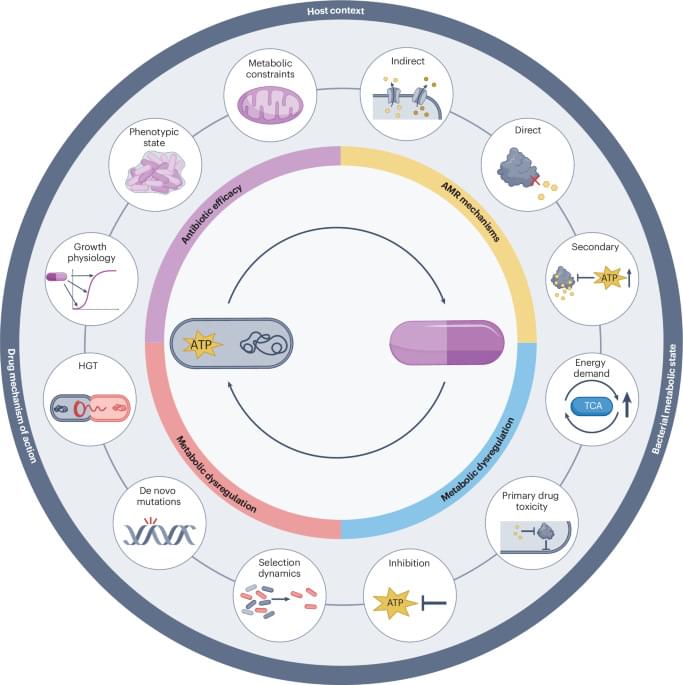Video made solely for educational purposes.
All rights reserved to their respective holders.
Made in association with the University of Central Florida.
Video made solely for educational purposes.
All rights reserved to their respective holders.
Made in association with the University of Central Florida.
Lecture by Jeffrey D. Schall, Ph.D.
For over a century, galvanic vestibular stimulation (GVS) has been used as a way to stimulate the inner ear nerves by passing a small amount of current.
We use GVS in a two player escape the room style VR game set in a dark virtual world. The VR player is remote controlled like a robot by a non-VR player with GVS to alter the VR player’s walking trajectory. We also use GVS to induce the physical sensations of virtual motion and mitigate motion sickness in VR.
Brain hacking has been a futurist fascination for decades. Turns out, we may be able to make it a reality as research explores the impact of GVS on everything from tactile sensation to memory.
Misha graduated in June 2018 from the MIT Media Lab where she worked in the Fluid Interfaces group with Prof Pattie Maes. Misha works in the area of human-computer interaction (HCI), specifically related to virtual, augmented and mixed reality. The goal of her work is to create systems that use the entire body for input and output and automatically adapt to each user’s unique state and context. Misha calls her concept perceptual engineering, i.e., immersive systems that alter the user’s perception (or more specifically the input signals to their perception) and influence or manipulate it in subtle ways. For example, they modify a user’s sense of balance or orientation, manipulate their visual attention and more, all without the user’s explicit awareness, and in order to assist or guide their interactive experience in an effortless way.
The systems Misha builds use the entire body for input and output, i.e., they can use movement, like walking, or a physiological signal, like breathing as input, and can output signals that actuate the user’s vestibular system with electrical pulses, causing the individual to move or turn involuntarily. HCI up to now has relied upon deliberate, intentional usage, both for input (e.g., touch, voice, typing) and for output (interpreting what the system tells you, shows you, etc.). In contrast, Misha develops techniques and build systems that do not require this deliberate, intentional user interface but are able to use the body as the interface for more implicit and natural interactions.
Misha’s perceptual engineering approach has been shown to increase the user’s sense of presence in VR/MR, provide novel ways to communicate between the user and the digital system using proprioception and other sensory modalities, and serve as a platform to question the boundaries of our sense of agency and trust.
When the universe branches, we branch with it. Those branches don’t remain forever apart. They come back together. So we, as conscious observers, are rescued f…

“Anyone with lungs can get lung cancer.” Kelly thought it couldn’t happen to her—until it did. Having worked at Pfizer for over 25 years, she knew how an unexpected diagnosis could suddenly turn someone’s life upside down, but nothing could have prepared her for her own cancer journey.
After developing a chronic cough, Kelly was looking for answers. She had appointments with several healthcare providers and specialists who diagnosed her with everything from gastroesophageal reflux disease to long COVID. Nothing gave her relief. Kelly’s symptoms only got worse; her cough soon became debilitating, and she developed shortness of breath. After months of frustration, she decided to take matters into her own hands and called a friend who works as a pulmonologist. After hearing her symptoms, he booked Kelly for a CT scan right away. Minutes after the test was complete, she received news that turned her life upside down—she had cancer.
Despite significant advancements, millions of people across the globe face a cancer diagnosis each year. For the Pfizer Oncology team, these individuals are more than a statistic—they are parents, children, friends and colleagues.

In this Review, Ahmad et al. examine how antibiotics influence bacterial metabolism and how metabolism, in turn, affects drug efficacy and the emergence and evolution of antimicrobial resistance. They also explore the role of bacterial metabolism in clinical contexts and the potential for metabolic-based therapies to improve antibacterial treatment.

A breakthrough from JMU Würzburg researchers has brought science one step closer by creating a stacked dye system that efficiently moves charge carriers using light—just like in plant cells.
Harnessing Sunlight: The Magic of Photosynthesis
Photosynthesis is the process plants use to convert sunlight, carbon dioxide, and water into energy-rich sugars and oxygen. This remarkable system fuels plant growth and releases the oxygen we breathe.


The eyes can reveal a lot about the health of our brain. Indeed, problems with the eyes can be one of the earliest signs of cognitive decline.
Our latest study shows that a loss of visual sensitivity can predict dementia 12 years before it is diagnosed.
Our research was based on 8,623 healthy people in Norfolk, England, who were followed up for many years. By the end of the study, 537 participants had developed dementia, so we could see what factors might have preceded this diagnosis.
Just a couple more steps before the LSST Camera turns its 3,200 megapixels toward the cosmos.